2006–07 UEFA Champions League
2006–07 UEFA Champions League
| Tournament details |
| Dates |
12 September 2006 – 23 May 2007 |
| Teams |
32 (from UEFA confederations) |
| Final positions |
| Champions |
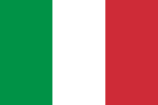 Milan (7th title) Milan (7th title) |
| Runner-up |
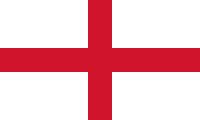 Liverpool Liverpool |
| Tournament statistics |
| Matches played |
125 |
| Goals scored |
311 (2.49 per match) |
| Attendance |
5,746,346 (45,971 per match) |
| Top scorer(s) |
Kaká
(10 goals) |
| Best player |
Kaká |
|
|
|
The 2006–07 UEFA Champions League was the 15th season of UEFA's premier European club football tournament, the UEFA Champions League, since it was rebranded from the European Cup, and the 52nd season overall. The final was contested by Milan and Liverpool on 23 May 2007. Beforehand, the match was billed as a repeat of the 2005 final, the only difference being that the 2007 final was to be played at the Olympic Stadium in Athens, Greece. Milan won the match 2–1 to claim their seventh European Cup, with both goals coming from Filippo Inzaghi. Dirk Kuyt scored for Liverpool.
Early issues
Italian Serie A scandal
The Italian qualifiers should have been, according to the results of the 2005–06 Serie A campaign, Juventus, Milan, Internazionale, and Fiorentina. After the match-fixing scandal, the four teams were decided on 25 July.
Internazionale and Roma were confirmed as the direct entrants to the group stage. Milan and Chievo were confirmed as the entrants into the third qualifying round. Originally, Milan were barred from the Champions League, but were restored to the competition on appeal, although instead of entering the group stage directly, they first had to negotiate a third qualifying round tie, in which they beat Red Star Belgrade 3–1 on aggregate.[1] This move by the Italian FA has proved to be a point of contention, since Milan went on to win the competition.
The participation of Greek teams in this year's tournament was in doubt following FIFA's suspension of the Hellenic Football Federation from all international competition because of government interference in the running of the sport in Greece. FIFA suspended the Hellenic Football Federation from all international competitions on 3 July 2006 because of incompatibilities between Greek law and FIFA regulations.[2][3] This would have prevented Greek teams from participating in the competition. However, the Greek parliament amended the draft sports law on the night of 11 July to satisfy FIFA's objections, and the suspension was lifted on 12 July.[4]
Later issues
Doubt over matches to be played in Italy
On 8 February, the Italian Government announced that San Siro Stadium in Milan was unsafe for spectators in light of riots that took place during and following an Italian Serie A match in Sicily. As a result, the venues of the first leg of the Inter-Valencia tie scheduled for 21 February and the second leg of the Celtic-Milan tie scheduled for 7 March were thrown into doubt. Various proposals and offers of the use of stadia outside Italy were made,[5][6] but it was finally agreed that the Inter-Valencia tie would be played at the San Siro with a reduced capacity of 36,000. After further work at the San Siro, Italian authorities and UEFA announced that the second leg of Celtic-Milan would go ahead at the stadium, at its full capacity of 85,700. 4,500 seats were reserved for Celtic supporters.[7]
Qualification
Seventy-three teams participated in the 2006–07 UEFA Champions League from UEFA's 50 member associations. Each association enters a certain number of clubs to the Champions League based on its league coefficient; associations with a higher league coefficients may enter more clubs than associations with a lower league coefficient, but no association may enter more than four teams. All UEFA associations are guaranteed to have at least one team qualify, with the exception of Liechtenstein, which competes in the Swiss league system, but has no team in the Swiss Super League.
- Associations 1–3 (Spain, England, and Italy): 4 teams
- Associations 4–6 (France, Germany, and Portugal): 3 teams
- Associations 7–15: 2 teams
- Associations 16–50: 1 team
- Andorra and San Marino do not submit a team for the UEFA Champions League
- First qualifying round (24 teams)
- 24 champions from associations 26–50 (excluding Liechtenstein)
- Second qualifying round (28 teams)
- 12 winners from the first qualifying round
- 10 champions from associations 16–25
- 6 runners-up from associations 10–15
- Third qualifying round (32 teams)
- 14 winners from the second qualifying round
- 6 champions from associations 10–15 (Scotland, Turkey, Czech Republic, Russia, Austria, Ukraine)
- 3 runners-up from associations 7–9 (Netherlands, Greece, Belgium)
- 6 third-place finishers from associations 1–6
- 3 fourth-place finishers from associations 1–3
- Group stage (32 teams)
- Title holders
- 16 winners from the third qualifying round
- 9 champions from associations 1–9
- 6 runners-up from associations 1–6
1 This club qualified for this season's UEFA competitions as a member of the Football Association of Serbia and Montenegro during the 2005–06 season but is currently a member of the Football Association of Serbia which is the official successor of the previous football association.[8]
TH Title Holders
Qualifying rounds
First qualifying round
The first legs were played on 11 July and 12 July 2006, with the second legs on 18 July and 19 July.
| Team 1 |
Agg. |
Team 2 |
1st leg |
2nd leg |
Elbasani 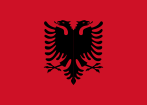 |
1–3 |
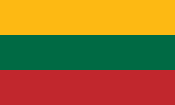 Ekranas Ekranas |
1–0 |
0–3 |
FC TVMK  |
3–4 |
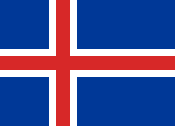 FH Hafnarfjörður FH Hafnarfjörður |
2–3 |
1–1 |
Liepājas Metalurgs 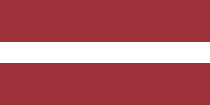 |
2–1 |
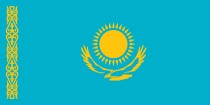 Aktobe Aktobe |
1–0 |
1–1 |
MyPa 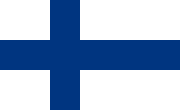 |
2–0 |
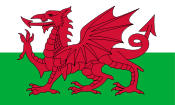 The New Saints The New Saints |
1–0 |
1–0 |
Cork City 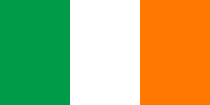 |
2–1 |
 Apollon Limassol Apollon Limassol |
1–0 |
1–1 |
Sioni Bolnisi  |
2–1 |
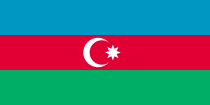 Baku Baku |
2–0 |
0–1 |
F91 Dudelange 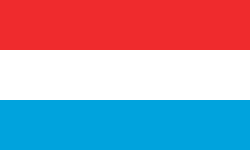 |
0–1 |
 Rabotnički Rabotnički |
0–1 |
0–0 |
Shakhtyor 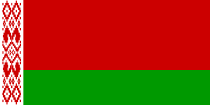 |
0–2 |
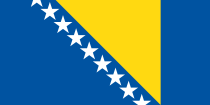 Široki Brijeg Široki Brijeg |
0–1 |
0–1 |
Birkirkara 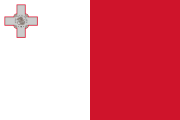 |
2–5 |
 B36 B36 |
0–3 |
2–2 |
Linfield  |
3–5 |
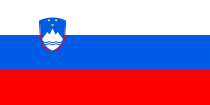 Gorica Gorica |
1–3 |
2–2 |
Pyunik 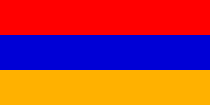 |
0–2 |
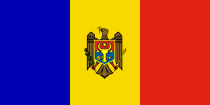 Sheriff Tiraspol Sheriff Tiraspol |
0–0 |
0–2 |
Second qualifying round
The first legs were played on 25 July and 26 July 2006, with the second legs on 1 August and 2 August.
Third qualifying round
The first legs were played on 8 August and 9 August 2006, with the second legs on 22 August and 23 August.
The teams eliminated in this round qualified for the first round of the UEFA Cup.
* Due to the armed conflict going on in Israel, UEFA decided that no European matches could be staged in the country until further notice.[9] The match was played at Lobanovsky Dynamo Stadium in Kiev, Ukraine.[10]
Group stage
The draw for this round was held on 24 August 2006 in Monaco. The first matches were played on 12 September 2006, and the stage concluded on 6 December.
Tie-breaking criteria
Based on paragraph 4.05 in the UEFA regulations for the current season, if two or more teams are equal on points on completion of the group matches, the following criteria are applied to determine the rankings:
- higher number of points obtained in the group matches played among the teams in question;
- superior goal difference from the group matches played among the teams in question;
- higher number of goals scored away from home in the group matches played among the teams in question;
- superior goal difference from all group matches played;
- higher number of goals scored in all group matches played;
- higher number of coefficient points accumulated by the club in question, as well as its association, over the previous five seasons.
| Key to colours in group tables |
| Teams that progressed to the first knockout round are indicated in bold type |
| Teams that progressed to the UEFA Cup are indicated in bold italics |
| Teams eliminated from European competitions for the season are indicated in plain italics |
Group A
Group B
Group C
Group D
Group E
Group F
Group G
Notes:
- Arsenal won the group by virtue of a win and a draw against Porto
Group H
(KEY: Pts= Points; Pld= Matches Played; W= Matches Won; D= Matches Drawn; L= Matches Lost; GF= Goals For; GA= Goals Against; GD= Goal Difference)
Knockout stage
All knockout rounds are two-legged, except for the final. In the event of aggregate scores being equal after normal time in the second leg, the winning team will be that which scored more goals on their away leg: if the scores in the two matches were identical, extra time is played. The away goals rule also applies if scores are equal at the end of extra time. If there are no goals scored in extra time, the tie is decided on a penalty shoot out.
Bracket
First knockout round
The draw for the first knockout round of the competition took place on 15 December 2006 in Nyon, Switzerland.[11] The team first out of the hat in each tie plays the first leg of their tie at home, and the second leg away. This team is denoted as "Team #1" below.
The first legs were played on 20 February and 21 February 2007, with the second legs on 6 March and 7 March.
Quarter-finals
The draw for the final stages, including the quarter-finals, semi-finals and final, was held on Friday, 9 March 2007 in Athens, Greece. The draw was conducted by ad interim UEFA CEO Gianni Infantino, assisted by Friedrich Stickler, chairman of the UEFA Club Competitions Committee. Theodoros Zagorakis, the captain of Greece in Euro 2004, was appointed ambassador for the final.
The first legs were played on 3 April and 4 April, and the second legs were played on 10 April and 11 April 2007.
Semi-finals
The first legs were played on 24 April and 25 April, with the second legs on 1 May and 2 May 2007.
Final
The Final took place on 23 May 2007 at the Olympic Stadium in Athens, Greece. Unlike the other knockout rounds, the final was played over just one match, with extra time in case of a draw after 90 minutes. If the teams were still level following extra time, a penalty shootout would have determined the winner.
Milan scored first through Filippo Inzaghi just before half time. Inzaghi scored again in the 82nd minute, before Dirk Kuyt scored a late consolation goal a minute before full time.
Milan went on to represent Europe at the 2007 FIFA Club World Cup.
UEFA Champions League
2006–07 Winners |
 |
A.C. Milan
Seventh title |
Top scorers
The top scorers from the 2006–07 UEFA Champions League (group stage and knockout stage only) are as follows:
Trivia
- Levski Sofia were the first Bulgarian team to compete in the UEFA Champions League group stage.
- Copenhagen made their first appearance in the UEFA Champions League group stage.
- Barcelona set a new record of 15 games without a Champions League loss, having gone undefeated from their first match in the 2005–06 group stage against Werder Bremen until they were beaten by Chelsea in the next match.
- Celtic qualified for the knockout stage for the first time since the tournament was restructured.
- Referee Mike Riley broke the record for the most yellow cards in a single UEFA Champions League match this season which he officiated between Lyon and Roma in the first knockout round. A total of 11 yellow cards (8 to Roma and 3 to Lyon) were issued in that game.[13]
- Following their match with Internazionale, Valencia players fought with Inter players. Inter's Nicolas Burdisso sustained a nasal fracture following a punch from Valencia's David Navarro in the incidents which took place after the match.[14] Navarro has since then issued an apology to Burdisso, UEFA and his club for his actions.[15] After looking into the matter, UEFA suspended Navarro for seven months, which includes domestic and international matches. Burdisso and Inter defender Maicon were each suspended for six matches, Carlos Marchena for four, Iván Córdoba for three matches and Julio Ricardo Cruz for two. Both clubs have also been handed a €155,772 (CHF250,000/£106,217) fine.[16] Valencia advanced on the away goals rule following the scoreless draw. Navarro's ban was reduced from seven months to six on 28 March 2007. Marchena's ban was also reduced from four games to two, Córdoba's was reduced from three games to two and Maicon's was reduced from six games to three. Meanwhile, Burdisso and Cruz had their bans upheld.[17]
- Roma progressed to the quarter-finals of the European Cup for the first time since 1984.
- Roy Makaay scored the fastest goal in the competition's history, hitting the back of the net just 10.03 seconds after the start of Bayern Munich's second leg match at home to Real Madrid.
- As Milan won the competition this year, it became the first time a team has won the trophy twice in the same stadium since the beginning of the Champions League era, having also won the competition at the Olympic Stadium in Athens back in 1994. Real Madrid and Liverpool have already achieved this feat in the pre-Champions League era; the first one won the European Cup in the Heysel Stadium, Brussels, in 1958 and 1966, and the second one won in the Stadio Olimpico, Rome, in 1977 and 1984.
- Milan's victory brought Italian sides level with Spanish sides in terms of Champions League titles, both with four wins each since 1993. However, Italian teams had made more final appearances, with Serie A sides having played in ten Champions League finals. Spanish teams had been present in seven, and English teams present in four.
See also
References
External links
|
European Cup and UEFA Champions League |
|
| European Cup era, 1955–1992 |
|
| Seasons |
1955–56 · 1956–57 · 1957–58 · 1958–59 · 1959–60 · 1960–61 · 1961–62 · 1962–63 · 1963–64 · 1964–65 · 1965–66 · 1966–67 · 1967–68 · 1968–69 · 1969–70 · 1970–71 · 1971–72 · 1972–73 · 1973–74 · 1974–75 · 1975–76 · 1976–77 · 1977–78 · 1978–79 · 1979–80 · 1980–81 · 1981–82 · 1982–83 · 1983–84 · 1984–85 · 1985–86 · 1986–87 · 1987–88 · 1988–89 · 1989–90 · 1990–91 · 1991–92
|
|
| Finals |
1956 · 1957 · 1958 · 1959 · 1960 · 1961 · 1962 · 1963 · 1964 · 1965 · 1966 · 1967 · 1968 · 1969 · 1970 · 1971 · 1972 · 1973 · 1974 · 1975 · 1976 · 1977 · 1978 · 1979 · 1980 · 1981 · 1982 · 1983 · 1984 · 1985 · 1986 · 1987 · 1988 · 1989 · 1990 · 1991 · 1992
|
|
|
| Champions League era, 1992–present |
|
| Seasons |
|
|
| Finals |
1993 · 1994 · 1995 · 1996 · 1997 · 1998 · 1999 · 2000 · 2001 · 2002 · 2003 · 2004 · 2005 · 2006 · 2007 · 2008 · 2009 · 2010 · 2011 · 2012 |
|
|
| Anthem · Broadcasters · History · Records and statistics · Top scorers · Trophy · Winning managers · Winning players · Winning teams |
|
|
2006–07 in European football (UEFA) |
|
| Domestic leagues |
Albania · Andorra · Armenia '06 '07 · Austria · Azerbaijan · Belarus '06 '07 · Belgium · Bosnia and Herzegovina · Bulgaria · Croatia · Cyprus · Czech Republic · Denmark · England · Estonia '06 '07 · Faroe Islands '06 '07 · Finland '06 '07 · France · Georgia · Germany · Greece · Hungary · Iceland '06 '07 · Ireland '06 '07 · Israel · Italy · Kazakhstan '06 '07 · Latvia '06 '07 · Lithuania '06 '07 · Luxembourg · Rep. of Macedonia · Malta · Moldova · Montenegro · Netherlands · Northern Ireland · Norway '06 '07 · Poland · Portugal · Romania · Russia '06 '07 · San Marino · Scotland · Serbia · Slovakia · Slovenia · Spain · Sweden '06 '07 · Switzerland · Turkey · Ukraine · Wales |
|
| Cup competitions |
Albania · Andorra '06 '07 · Armenia '06 '07 · Austria · Azerbaijan · Belarus · Belgium · Bosnia and Herzegovina · Bulgaria · Croatia · Cyprus · Czech Republic · Denmark · England · Estonia · Faroe Islands '06 '07 · Finland '06 '07 · France · Georgia · Germany · Greece · Hungary · Iceland '06 '07 · Ireland '06 '07 · Israel · Italy · Kazakhstan '06 '07 · Latvia '06 '07 · Liechtenstein · Lithuania · Luxembourg · Rep. of Macedonia · Malta · Moldova · Montenegro · Netherlands · Northern Ireland · Norway '06 '07 · Poland · Portugal · Romania · Russia · San Marino · Scotland · Serbia · Slovakia · Slovenia · Spain · Sweden '06 '07 · Switzerland · Turkey · Ukraine · Wales
|
|
| League Cups |
England · Finland '06 '07 · France · Iceland '06 '07 · Ireland '06 '07 · Israel · Northern Ireland · Scotland · Wales
|
|
| UEFA competitions |
Champions League (Qualifying, group stage, knockout stage, final) · UEFA Cup (Group stage, knockout stage, final) · Intertoto Cup '06 '07 · Super Cup '06 '07 |
|

